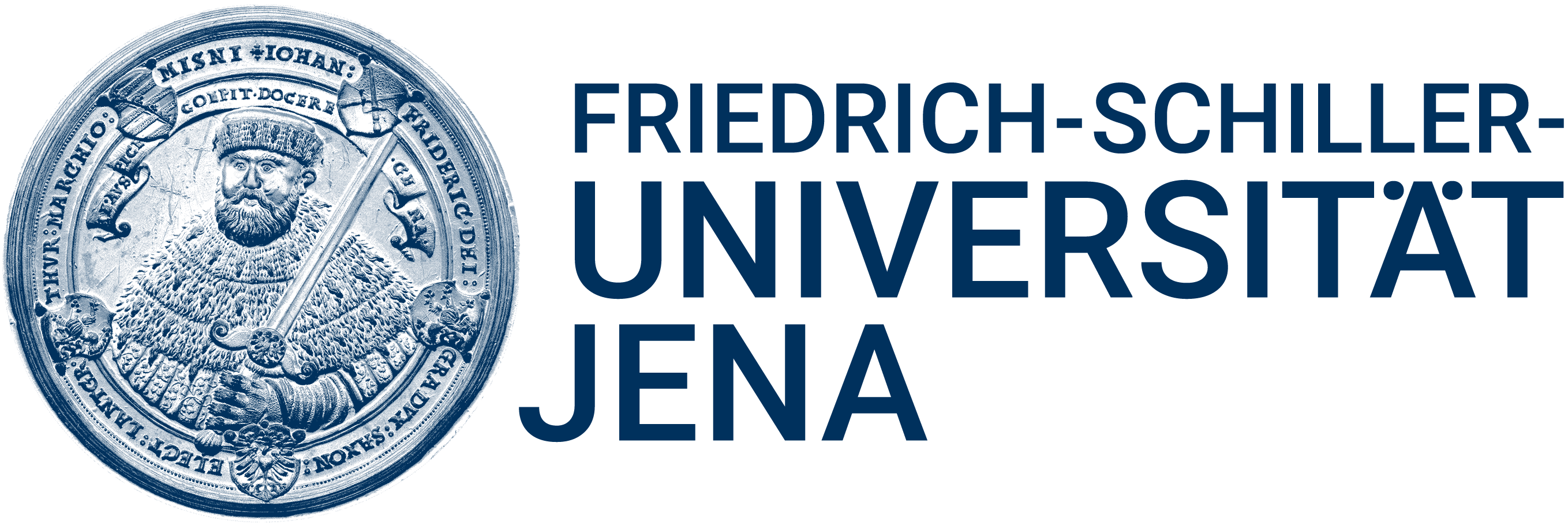Job advertisement
Vacancy ID: 007/2025
Closing date: 2025-02-07



Friedrich Schiller University is a traditional university with a strong research profile rooted in the heart of Germany. As a university covering all disciplines, it offers a wide range of subjects. Its research is focused on the areas Light—Life—Liberty. It is closely networked with non-research institutions, research companies and renowned cultural institutions. With around 17.000 students and more than 10.000 employees, the university plays a major role in shaping Jena’s character as a cosmopolitan and future-oriented city.
The German Centre for Integrative Biodiversity Research (iDiv) Halle-Jena-Leipzig is a world-leading cen-tre for biodiversity science and focuses on understanding biodiversity on our planet. Founded in 2012 with funding from the German Research Foundation (DFG), iDiv has since grown to over 300 employees and 170 members. iDiv is largely funded by the three central German states of Saxony-Anhalt, Thuringia and Saxony. Their three universities in Halle, Jena and Leipzig operate the research centre in cooperation with the Helm-holtz Centre for Environmental Research GmbH - UFZ. More information about iDiv: www.idiv.de.
The advertised position is based in the research group “Theory in Biodiversity Science” of Prof. Ulrich Brose – the Ecological Networks Lab (EcoNetLab). We seek to fill the position of a
Postdoctoral Researcher Integrating food webs and information flow networks
commencing on 1st of April 2025 or shortly thereafter and limited for 3 years. This is a full-time position with 40 hours per week; place of work is iDiv in Leipzig.
Ecological Networks Lab (EcoNetLab) is one of the research groups at iDiv (Theory in Biodiversity Science). The research topics covered include (i) describing natural communities by ecological networks comprising the species and their trait-based interactions and (ii) understanding metacommunities as spatial networks of habitat patches linked by animal movement. Thereby, we aim to understand environmental and anthropogenic constraints on biodiversity as well as the consequences of biodiversity change for eco-system functions. More information on the working group is available at www.idiv.de/econetlab.
Research topic:
Natural communities are complex networks of species interconnected through diverse interactions. Understanding this complexity is essential for predicting how global change impacts biodiversity and ecosystem functions. Yet, information flow between species (e.g., alarm signals or prey cues), a key aspect of behavioral ecology, is largely overlooked in network ecology. This is concerning as anthropogenic sensory pollution (e.g., artificial light, noise, scent, and vibration) is increasingly disrupting information flow, with limited predictive theory on its effects. This project, funded by the German Research Foundation DFG, introduces the concept of an "internet of nature," linking species through information flows. It will explore the structure of these links and their effects on population dynamics, community stability, and ecosystem functioning. A final focus will investigate how sensory pollution disrupts these connections. By integrating information flows with food web models, the project aims to enhance ecological network modeling, improve forecasts of ecological risks, and inform strategies to mitigate the effects of global change, ultimately helping preserve Earth’s intricate web of life.
Your responsibilities:
- You develop a research agenda based on a proposal funded by the German Research Foundation DFG
- You complement the work program of the proposal with your own ideas on how to integrate information flow interactions into food webs
- You work with ecological databases and computer code (e.g. R or C++) to model ecological networks
- You write scientific papers in internationally peer-reviewed journals
- You present your research at national and international meetings and conferences
Your profile:
- PhD degree in biology, ecology, or a similar discipline
- Knowledge of ecological theory and concepts (e.g., metabolic scaling, food webs, animal movement, meta-populations or meta-communities)
- Proficiency in a programming language (R , C++, or similar)
- Excellent oral and written communication skills in English
We offer:
- An intellectually stimulating, independent and varied scientific activity with creative opportunities
- An international, English-speaking research environment with regular integrative group
- activities and a collaborative atmosphere
- A broad scientific network which offers ample opportunities for collaborations within iDiv and beyond
- Participation in our targeted iDiv postdoc program which offers workshops, coaching, mentoring and networking events on career development for postdocs
- A modern, family-friendly working environment, attractive working conditions (mobile work) and an employer pension scheme
- Remuneration based on the provisions of the Collective Agreement for the Public Sector of the Federal States (TV-L) up to salary scale E13 depending on the candidate’s personal qualifications, including a special annual payment in accordance with the collective agreement
This is a full-time position (40 hours per week). In principle, the job is also suitable for part-time employment. The extent to which a part-time request can be granted, in particular with regard to the location and scope of the part-time work, will be assessed on the basis of the needs of the service.
Candidates with severe disabilities will be given preference in the case of equal qualifications and suitability.
Are you interested in working with us? Then please apply by 07.02.2025 using our online application portal at
Applications should include the following documents:
- A detailed letter of motivation including a rationale (“Why do you apply for this position?”) and description of your research interests (“What is driving your interest in ecology?”)
- A curriculum vitae
- A copy of your master’s and doctoral certificate
- The contact details of two academic references
- A list of your publications
For any questions about the position, please contact Prof. Dr. Ulrich Brose (ulrich.brose@idiv.de).